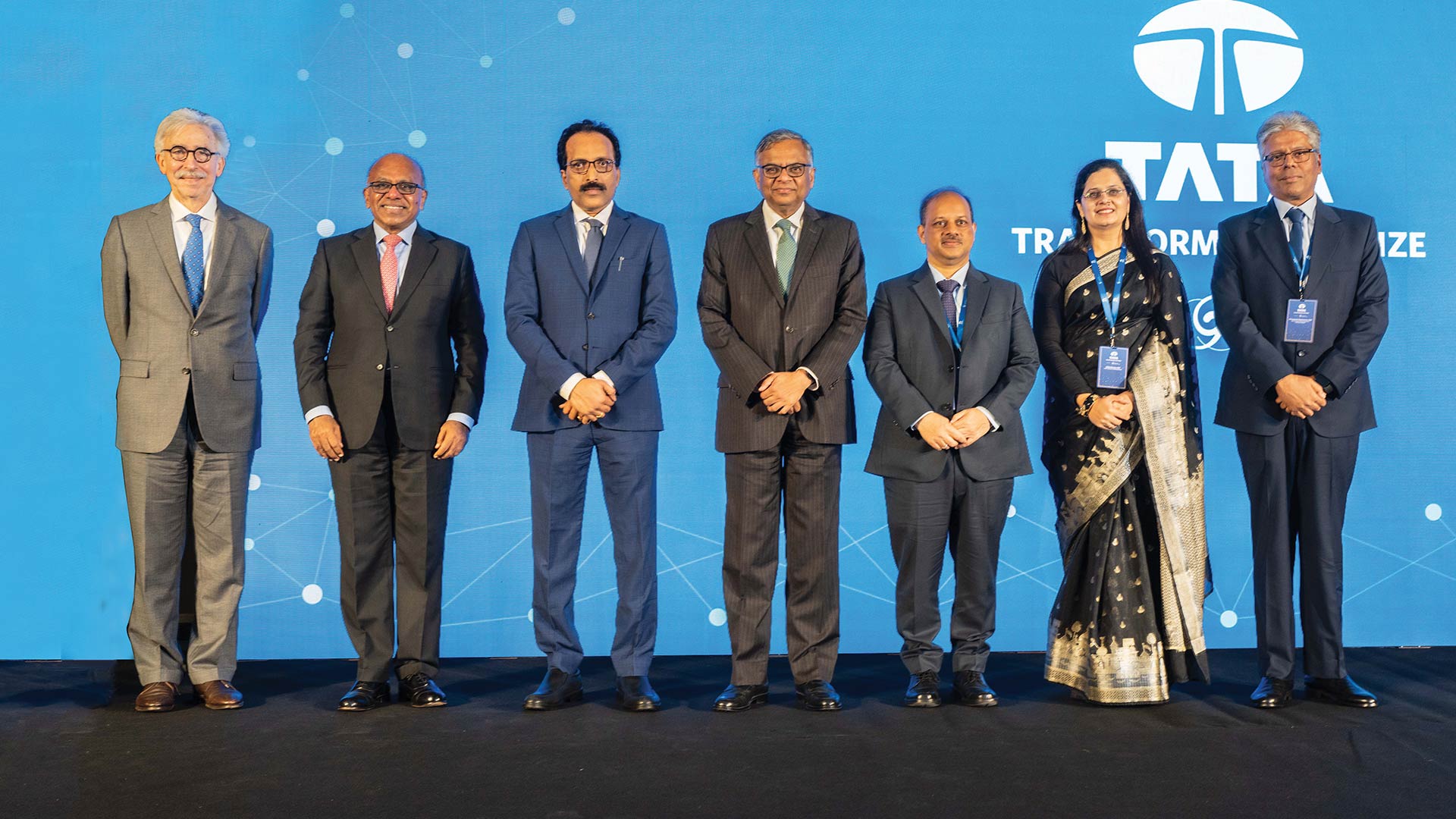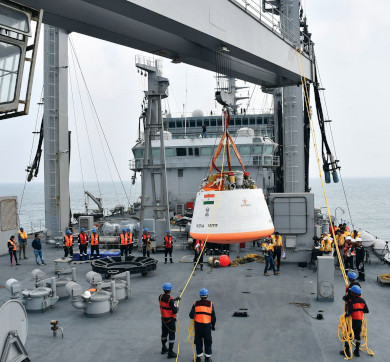April 2024 | 1451 words | 5-minute read
We are celebrating India’s vast potential for scientific innovation,” said N Chandrasekaran, Chairman, Tata Sons, at the first awards ceremony of the Tata Transformation Prize, instituted in 2023. “This award is premised on two simple principles — innovative technology has the power to address the most significant challenges facing society and the scientists best poised to address India’s greatest challenges are based right here in India.”
The annual prize, designed and developed by Tata Sons in collaboration with the New York Academy of Sciences (NYAS), supports the implementation at scale of high-risk, high-reward research that has the potential to transform India and the world. The awards ceremony, held in Mumbai in December 2023, felicitated three winners across three disciplines — food security, sustainability and healthcare — whose high potential work is ready for widescale deployment. Each winner received Rs 2 crore as prize money.
The 25-member jury panel included distinguished scientists, clinicians, technologists, and engineers from world-renowned organisations spread across six continents, including the Indian Institute of Science - Bengaluru, Indian Institute of Technology (IIT) Madras, IBM Research, UN-Habitat, International Centre for Genetic Engineering and Biotechnology, and the Public Health Foundation of India. The applications were assessed on their quality, vision, and feasibility of proposed innovations. “We received 169 applications for our inaugural prize, from 96 institutions spanning 22 states and territories across India,” said Dr Nicholas Dirks, President and Chief Executive Officer, NYAS. “The geographic diversity represented here demonstrates the outstanding innovation happening across India.”
Healthcare winner
Dr Anurag S Rathore, Professor, IIT Delhi
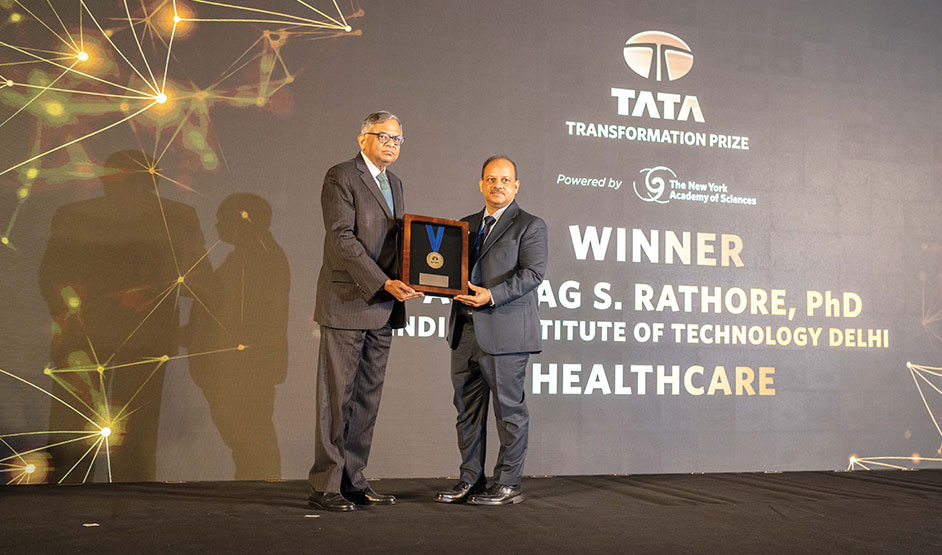
Making advanced healthcare affordable to all
Dr Rathore was selected by the jury for his efforts to reduce the manufacturing cost of best-in-class biotherapeutics for treating complex diseases like cancer and autoimmune diseases, making them more affordable and increasing access for those in need. “A single injection for a cancer patient can cost anywhere from Rs 5,000 to as much as Rs 1 lakh per vial,” says Dr Rathore. “And for this reason, biotherapeutic products are not very accessible to the majority of Indians.” To address this issue, Dr Rathore has established India’s first and only academic drug manufacturing facility that uses continuous processing at IIT Delhi.
The state-of-the-art facility incorporates novel methods for real time process monitoring and control to maintain efficiency and quality, and is projected to reduce manufacturing costs by 50-75% and increase productivity by 10-15%. The development of this system requires expertise in areas like data analytics, analytical characterisation of biotherapeutic products, process development, process modelling, and machine learning. Dr Rathore and his team have demonstrated how these integrated process platforms can be connected to each other, so that at any given time all the steps are working in unison, and how product quality can be monitored in real time to effectively deal with deviations that can cause disruptions.
“I am hoping that the recognition helps me in translating these innovations that I have made in the lab into manufacturing real commercial products,” says Dr Rathore. The aim is to improve productivity and reduce manufacturing costs, enabling equal access to these life-saving therapies that are out of reach for ~90% of Indians. “As a country, we have a great opportunity ahead of us and I believe that we will emerge as a world leader in low-cost manufacturing,” he says.
Sustainability winner
Dr Purnananda Guptasarma, Professor, Indian Institute of Science Education and Research Mohali
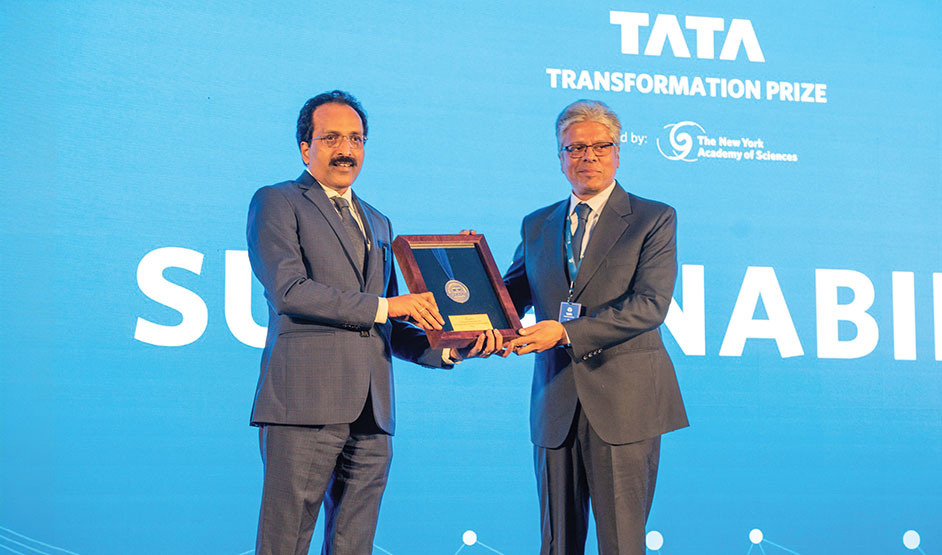
Engineering plastic circularity
Did you know that globally only 9% of plastic is recycled, with the rest ending up in landfills or oceans, turning into microplastics contaminating the air, water and soil as well as animal and human bodies? Polyethylene terephthalate or PET, a polymer made up of two molecular building blocks, terephthalic acid (TPA) and ethylene glycol (EG), is one of the most common plastic pollutants. In 2016, researchers published a paper on a bacterium that produced a specific enzyme that allowed it to break down PET. This fascinated Dr Guptasarma, who decided to delve further into the phenomenon.
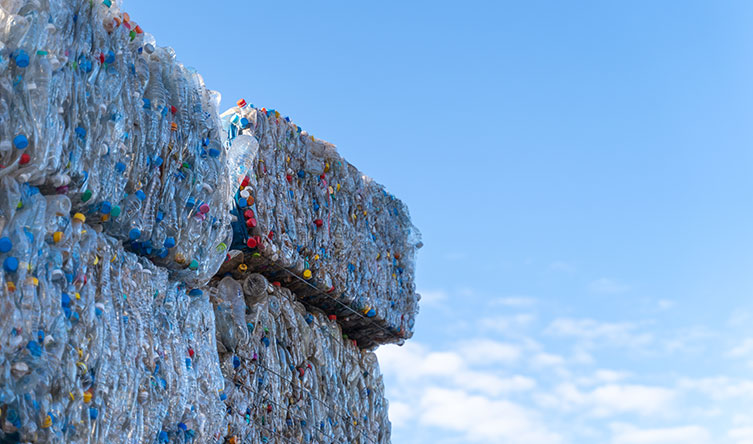
The result? A groundbreaking technique that utilises enzymes — molecular tools that can perform chemical reactions — to break down solid PET plastic waste into TPA and EG. Dr Guptasarma’s strategy involves using one enzyme to efficiently degrade solid PET into TPA and other degradation intermediates that escape into the solution, while another enzyme (that is present in the solution) converts the degradation intermediates into TPA and EG. The purity achieved by this use of synergy between carefully selected enzymes leads to the formation of pure TPA in the laboratory, which can then be re-formed into new plastic, theoretically enabling PET plastic recycling with near-perfect efficiency. “Purity with high yield is the main aspect of our work,” says Dr Guptasarma. “And we have continued to improve these enzymes further through protein engineering and redesign, which is genetic engineering and biochemistry, and three of the five best results in the world for PET degradation from enzymes are from our lab; and the only one that achieves purity and recyclability is from our lab.”
Building on this proof of concept, Dr Guptasarma plans to identify and improve enzymatic reagents and reactions for PET degradation and attempt to produce the best enzymes in quantities, allowing pilot-scale PET waste degradation and recycling. “I hope that our future work will catalyse a movement that will snowball into a solution sometime in the future,” he says.
Food security winner
Dr Shilpi Sharma, Professor, IIT Delhi
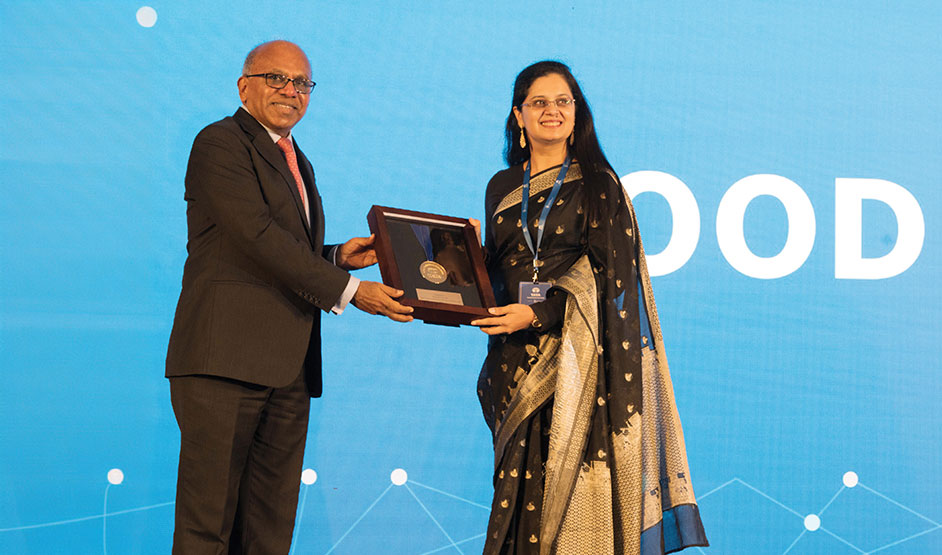
Mapping the natural suppressive potential of soil
Dr Sharma was recognised for her novel plan to engineer disease suppressing soil using synthetic microbial communities to facilitate sustainable agriculture in India. Plant diseases pose a significant threat to crop productivity and the global economy. In India, pests and plant diseases cause annual losses of over Rs 29,000 crore in the agricultural sector. Conventional farming methods involve the use of agrochemicals and synthetic fertilisers, while organic farming relies on the natural ability of soil to suppress plant pathogens.
“In the last decade, my lab worked towards comparing the soil microbiome of organic fields with conventionally managed ones by screening experimental and farmers’ fields under different agri management practices,” says Dr Sharma. “What we found is that the soil from organic fields exhibited suppressiveness under a range of pathogens and upon sterilising the soil and freeing it from microorganisms, the effect was gone. … This informed us that a better understanding of the microbiome in suppressive soil can be employed as a natural weapon to combat pathogens in an ecofriendly and sustainable manner.”
In a first-ever exercise of its kind in the country, Dr Sharma intends to generate a map of soil suppressiveness across six Indian states, which can then be utilised for the judicious application of chemicals in these areas. The next step involves identifying the active microbial players that confer suppressiveness upon the soil and creating a robust culture bank of potent biocultural strains. This will then be used to design synthetic microbial communities that will induce suppressiveness in soil devoid of the natural ability — called microBIOme-based soil TRANSFORMation (BIOTRANSFORM). This plan involves the use of conventional methods as well as state-of-the-art techniques like culturomics, metagenomics and metabolomics.

Dr Sharma also hopes to reap long-term benefits, such as employing the strain strategy for other biotechnological applications besides agriculture, and plans to propose the tracking of biological signatures associated with suppressive soils in Soil Health Card, a government scheme that provides farmers information about the soil’s nutrient status. This will encourage the intelligent use of agrochemicals and bioresources in farmlands. “I foresee a farmer spreading a handful of rich soil in terms of the microbiome it harbours instead of chemicals to transform unhealthy soil,” she says.
Supporting visionary scientists
In keeping with the group’s philosophy of placing nation-building at the core of its business, the Tata Transformation Prize is an endeavour to support the next generation of leading Indian scientists and unlock opportunities for a bright future. “A single fundamental breakthrough is the result of years and decades of trial and error, and the collaborative, iterative efforts of many,” said Mr Chandrasekaran. “Through the prize we are also celebrating the perseverance, conviction and sheer effort it takes to further intellectual inquiry beyond traditional barriers.”
—Arushi Agrawal

